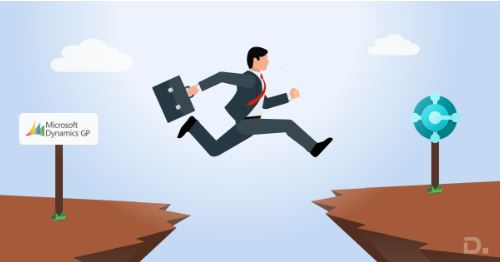As businesses strive for innovation and operational efficiency, the realm of enterprise resource planning (ERP) has witnessed significant transformations. For organizations leveraging Microsoft’s ERP solutions, the shift from Dynamics GP to Business Central has become a strategic imperative.
This migration is more than a routine software upgrade; it’s a transformative journey that demands careful planning and execution.
Understanding the Dynamics: GP vs. Business Central
Before delving into the intricacies of migration, it’s crucial to grasp the nuances of Dynamics GP and Business Central. Microsoft Dynamics GP, a stalwart in the ERP landscape, has served organizations for years with its robust financial management and reporting capabilities.
On the other hand, Business Central, a part of the Dynamics 365 suite, represents a new era, offering cloud-based flexibility and a holistic approach to business processes.
Why Migrate? Unraveling the Benefits
1. Enhanced Scalability and Flexibility
- Business Central, being a cloud-based solution, provides unparalleled scalability. As your business grows, the system effortlessly adapts to increased data volumes and user requirements. This scalability ensures that your ERP solution remains a catalyst for growth rather than a limiting factor.
2. Seamless Collaboration
- Collaboration is the cornerstone of modern business. Business Central facilitates seamless teamwork by enabling real-time collaboration, data sharing, and communication. This is a paradigm shift from Dynamics GP, fostering a more connected and collaborative work environment.
3. Holistic Business Visibility
- Business Central offers a unified view of your business operations. From finance to sales and supply chain, the platform integrates diverse functionalities, providing a comprehensive snapshot of your organization. This holistic visibility empowers decision-makers with actionable insights.
The Migration Blueprint: Dynamics 365 Partner’s Role
1. Selecting the Right Dynamics 365 Partner
- A successful migration hinges on choosing the right Dynamics 365 partner. Look for a partner with a proven track record in Dynamics 365 implementation and support. Their expertise ensures a smooth transition, minimizing disruptions to your business operations.
2. Comprehensive Analysis and Planning
- Before initiating the migration process, conduct a thorough analysis of your existing Dynamics GP setup. Identify customizations, third-party integrations, and data dependencies. A meticulous planning phase sets the foundation for a successful migration.
3. Data Migration Strategies
- Data is the lifeblood of any ERP system. A well-thought-out data migration strategy is crucial to prevent data loss or corruption during the transition. Work closely with your Dynamics 365 partner to map out a plan for migrating essential data seamlessly.
4. Customization and Integration Considerations
- Dynamics GP often involves customizations tailored to specific business needs. Assess these customizations and evaluate their compatibility with Microsoft Dynamics Business Central. Additionally, review integrations with other systems to ensure a smooth transition without disrupting interconnected processes.
Navigating Challenges: Dynamics 365 Support in the Migration Process
1. User Training and Change Management
- Transitioning to a new ERP system requires users to adapt to a different interface and workflow. Investing in comprehensive training programs and change management initiatives ensures a smooth transition and minimizes productivity dips.
2. Post-Migration Support
- Dynamics 365 support is crucial post-migration to address any unforeseen challenges or issues. Ensure that your Dynamics 365 partner offers ongoing support services to troubleshoot issues promptly and optimize the system based on evolving business needs.
3. Monitoring and Optimization
- Continuous monitoring of the migrated system is essential for identifying performance bottlenecks or areas of improvement. Regular optimization ensures that your ERP system aligns with the changing dynamics of your business environment.
Conclusion: A Seamless Transition to Future-Ready ERP
In the dynamic landscape of modern business, the migration from Dynamics GP to Business Central is a strategic move towards future-ready ERP. Partnering with a seasoned Dynamics 365 partner is the key to unlocking the full potential of this transition.
As businesses embrace the cloud-based flexibility, enhanced collaboration, and holistic visibility offered by Business Central, they position themselves for sustained growth in the digital era.
In your journey towards digital transformation, remember that the migration process is not just a technical upgrade; it’s an opportunity to redefine and streamline your business processes.
Embrace the change, leverage the expertise of your Dynamics 365 partner, and propel your organization into a more efficient and agile future.



